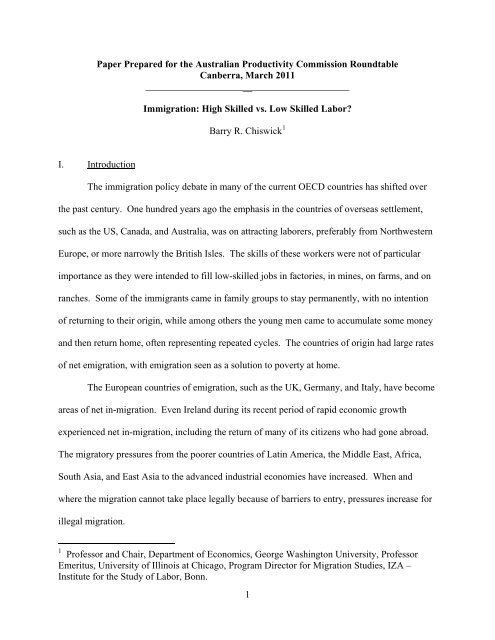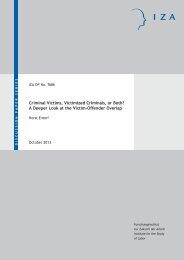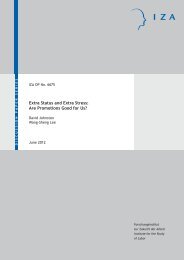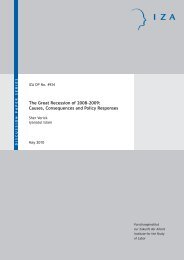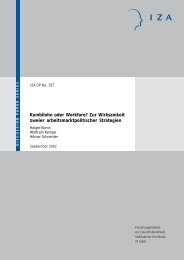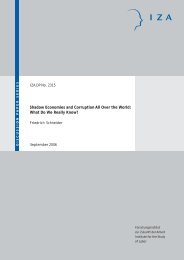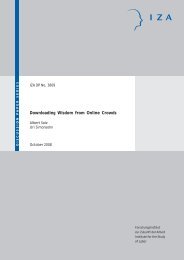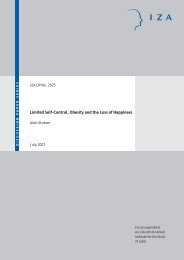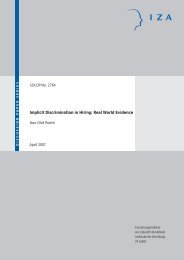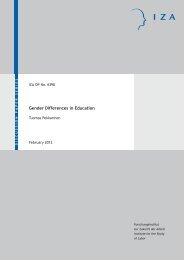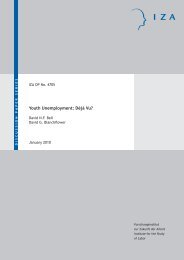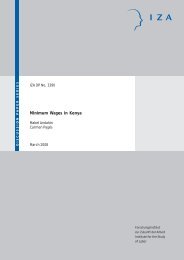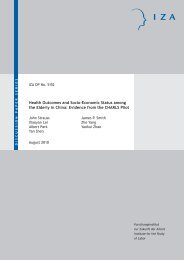Immigration: High Skilled vs. Low Skilled Labor? - Iza
Immigration: High Skilled vs. Low Skilled Labor? - Iza
Immigration: High Skilled vs. Low Skilled Labor? - Iza
Create successful ePaper yourself
Turn your PDF publications into a flip-book with our unique Google optimized e-Paper software.
Paper Prepared for the Australian Productivity Commission Roundtable<br />
Canberra, March 2011<br />
____________________ ____________________<br />
I. Introduction<br />
<strong>Immigration</strong>: <strong>High</strong> <strong>Skilled</strong> <strong>vs</strong>. <strong>Low</strong> <strong>Skilled</strong> <strong>Labor</strong>?<br />
Barry R. Chiswick 1<br />
The immigration policy debate in many of the current OECD countries has shifted over<br />
the past century. One hundred years ago the emphasis in the countries of overseas settlement,<br />
such as the US, Canada, and Australia, was on attracting laborers, preferably from Northwestern<br />
Europe, or more narrowly the British Isles. The skills of these workers were not of particular<br />
importance as they were intended to fill low-skilled jobs in factories, in mines, on farms, and on<br />
ranches. Some of the immigrants came in family groups to stay permanently, with no intention<br />
of returning to their origin, while among others the young men came to accumulate some money<br />
and then return home, often representing repeated cycles. The countries of origin had large rates<br />
of net emigration, with emigration seen as a solution to poverty at home.<br />
The European countries of emigration, such as the UK, Germany, and Italy, have become<br />
areas of net in-migration. Even Ireland during its recent period of rapid economic growth<br />
experienced net in-migration, including the return of many of its citizens who had gone abroad.<br />
The migratory pressures from the poorer countries of Latin America, the Middle East, Africa,<br />
South Asia, and East Asia to the advanced industrial economies have increased. When and<br />
where the migration cannot take place legally because of barriers to entry, pressures increase for<br />
illegal migration.<br />
1 Professor and Chair, Department of Economics, George Washington University, Professor<br />
Emeritus, University of Illinois at Chicago, Program Director for Migration Studies, IZA –<br />
Institute for the Study of <strong>Labor</strong>, Bonn.<br />
1


